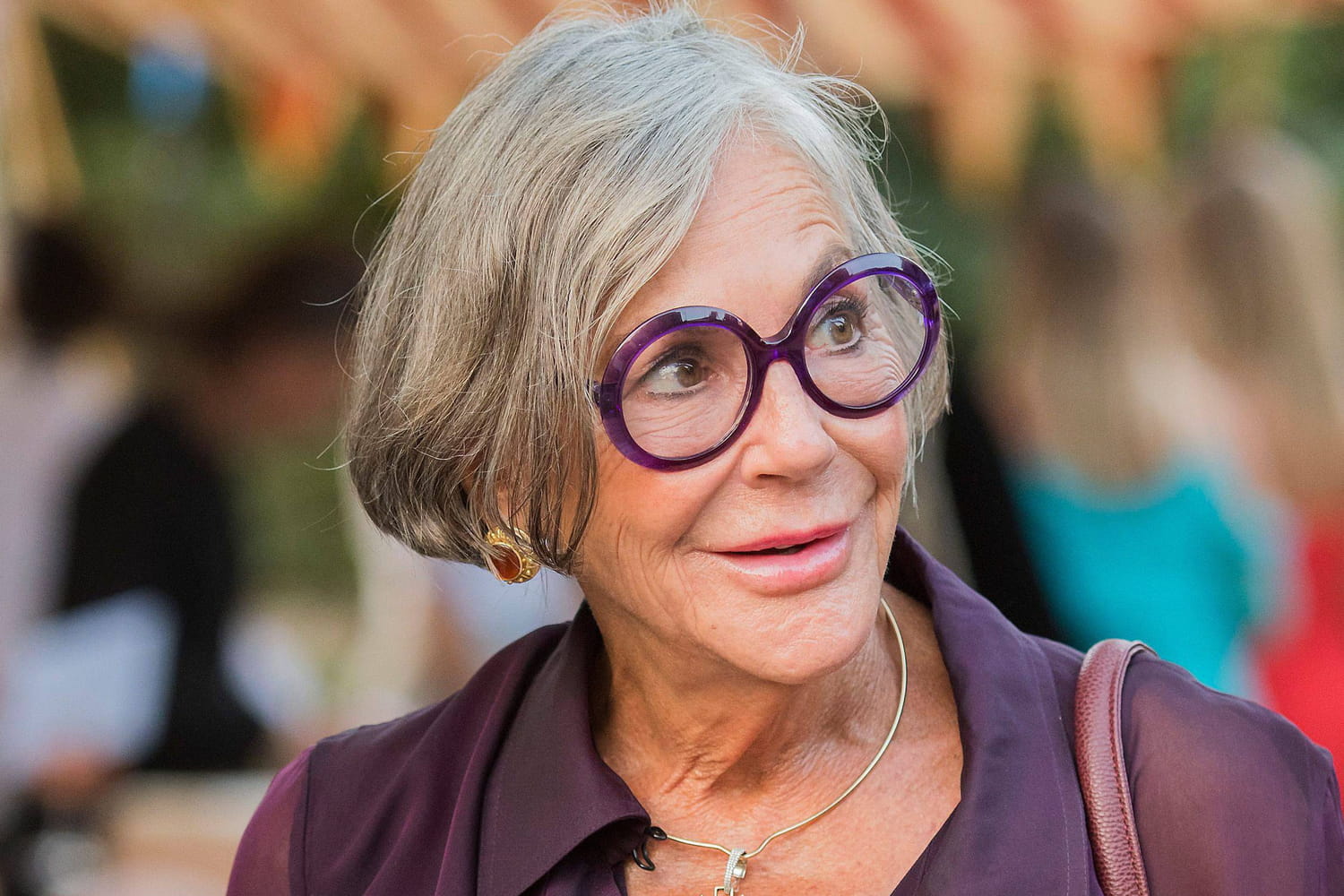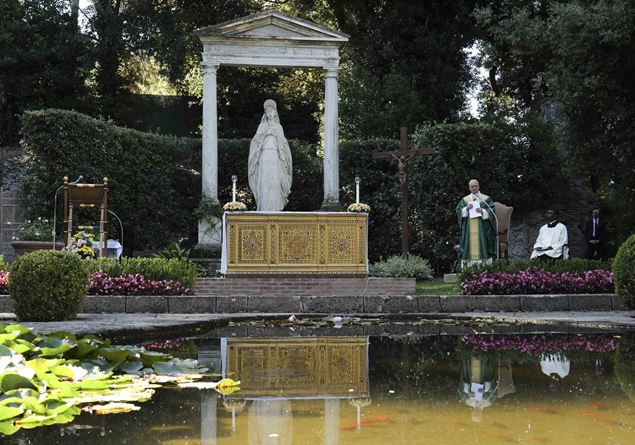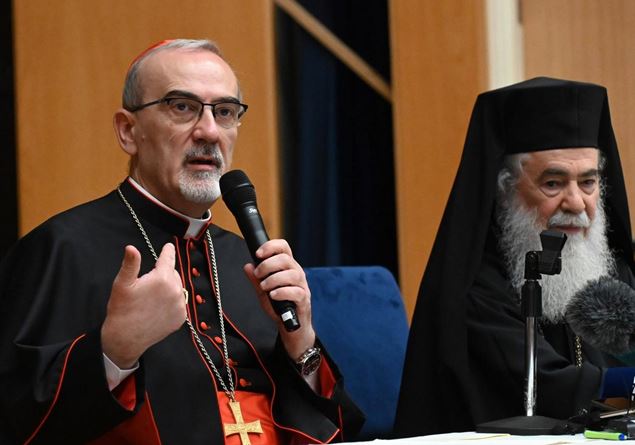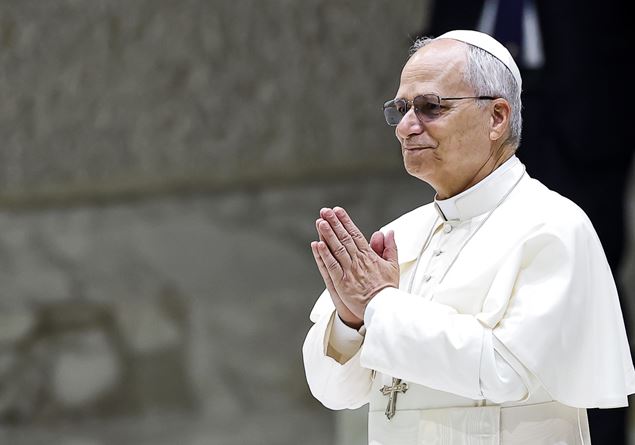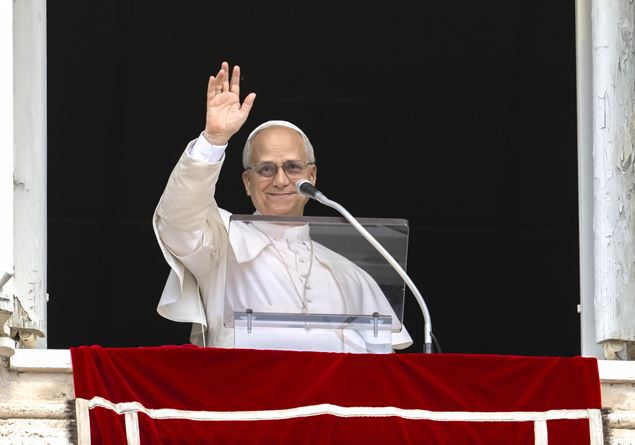Talk to the arm, Pope Leo. Immersed in the beauty of the Borgo Laudato yes to Castel Gandolfo, invites everyone including himself, “on this beautiful day”, to “live what we are celebrating in the beauty of a cathedral, one could say” natural “, With plants and many elements of the creation that brought us here to celebrate the Eucharist, which means: to make thanks to the Lord ».
Thanks because this is the first celebration with «The new formula of the Holy Mass for the treatment of creation, which was also an expression of the work of the different dicasteries in the Vatican “. Remember that “the liturgy represents the life and you are the life of this laudato center yes. I would like to say thanks to you at this moment, on this occasion, for everything you do by following this Beautiful inspiration of Pope Francis who gave this small portion, these gardens, these spaces to continue the mission so important regarding everything we know 10 years after Laudato’s publication yes: the need to take care of creation, the common house “.
With the mobile altar of the pontifical sacristy positioned under the statue of the Madonna, in front of the pond where the Pope had been photographed in his first inspection at the villas, Leone recalls that the place “is like in the ancient churches of the first centuries, which had the baptismal font for which it was supposed to go and then enter the church. I would not like to be baptized in this water … but the symbol of passing through water to be washed all by our sins, by our weaknesses, and thus being able to enter the great mystery of the Church is something that we also live today. At the beginning of the Mass we prayed for the conversion, our conversion. I would like to add that We must pray for the conversion of many people, inside and outside the Church, who still do not recognize the urgency to take care of the common house “. Always on the arm he insists on the fact that “Many natural disasters that we still see in the world, almost every day in many places, in many countries, are partly caused by the excesses of the human being, with its lifestyle. So we have to ask ourselves if we ourselves are experiencing that conversion or not: how much there is need! “.
Then he resumes the written homily to remember that the “n a world that burns, both for terrestrial overheating and for armed conflicts, which make Pope Francis’ message so current in his laudato encyclical and all brothers. We can find ourselves in this Gospel, which we have listened to, observing the fear of the disciples in the storm, a fear that is that of a large part of humanity. But in the heart of the year of the Jubilee we confess – and we can say it several times: there is hope! We met her in Jesus. He still calms the storm. Its power does not upset, but creates; It does not destroy, but makes it be, giving new life ». By repeating the question of the Gospel of Matteo: “Who is he ever, who even the winds and the sea obey him?”, Leone recognizes that “the amazement, which this question expresses, is the first step that makes us come out of fear. Around Lake Galilee, Jesus had inhabited and prayed. There he had called his first disciples in their places of life and work. The parables, with which he announced the kingdom of God, reveal a profound bond with that land and with those waters, with the rhythm of the seasons and the life of creatures “.
The storm is described as “a” upheaval of the earth “(the word Seismos): Matteo will use the same term for the earthquake at the time of the death of Jesus and at the dawn of his resurrection. On this upheaval Christ rises, standing standing: already here the Gospel makes us see the Risen One, present in our history underlying. The reproach that Jesus addresses to the wind and to the sea manifests his power of life and salvation, which dominates those forces in front of which the creatures feel lost ».
The disciples of Jesus, that day are “at the mercy of the storm, in the grip of fear, could not yet profess this knowledge of Jesus” and that is, that it is the living God. “Today, in the faith that has been transmitted to us, we can continue:” He is also the head of the body, of the Church. He is the principle, the firstborn of those who rise from the dead, so that he is the primacy on all things “. These are words that commit each. “Our mission of guarding the creation, of bringing you peace and reconciliation”, underlines the Pontiff, “is his own mission: the mission that the Lord has entrusted us. We listen to the cry of the earth, we listen to the cry of the poor, because this cry has come to the heart of God. Our indignation is his indignation, our work is his work “.
And, taking up the words of the psalm: «The voice of the Lord is above the waters, thunders the god of glory, the Lord on the great waters. The voice of the Lord is strength, the voice of the Lord is power “, we must feel called because” this voice commits the Church to prophecy, even when it demands the audacity to oppose the destructive power of the princes of this world. The indestructible alliance between the creator and creatures, in fact, mobilizes our intelligence and our efforts, so that evil is aimed at good, injustice in justice, greed in communion. With infinite love, the only God created all things, giving us life: for this reason St. Francis of Assisi calls the creatures brother, sister, mother. Only a contemplative look can change our relationship with the things created and let us out of the ecological crisis that causes the breakdown of relationships with God, with others and with the earth, because of sin “.
The laudato village yes, concludes Leone, «wants to be, for Intuition of Pope Francis, a “laboratory” in which to live that harmony with the creation that is healing and reconciliation for us, elaborating new and effective methods of guarding the nature entrusted to us. To you, who dedicate yourself with commitment to carry out this project, therefore I assure my prayer and my encouragement. The Eucharist we are celebrating gives meaning and supports our work. As Pope Francis writes, in fact, “in the Eucharist the creation finds its greatest elevation. The grace, which tends to manifest itself in a significant way, reaches a wonderful expression when God himself, made man, comes to make himself eat by his creature. The Lord, at the height of the mystery of the incarnation, wanted to reach our intimacy through a fragment of matter. Not from the above, but in our same world”. And he cites Sant’Agostino who, “in the last pages of his confessions, associates the things created and the man in a cosmic praise” saying to the Lord: “Your works praise you so that we love you, and we love you so that they praise your works”. And then “this is the harmony that we spread in the world”.



